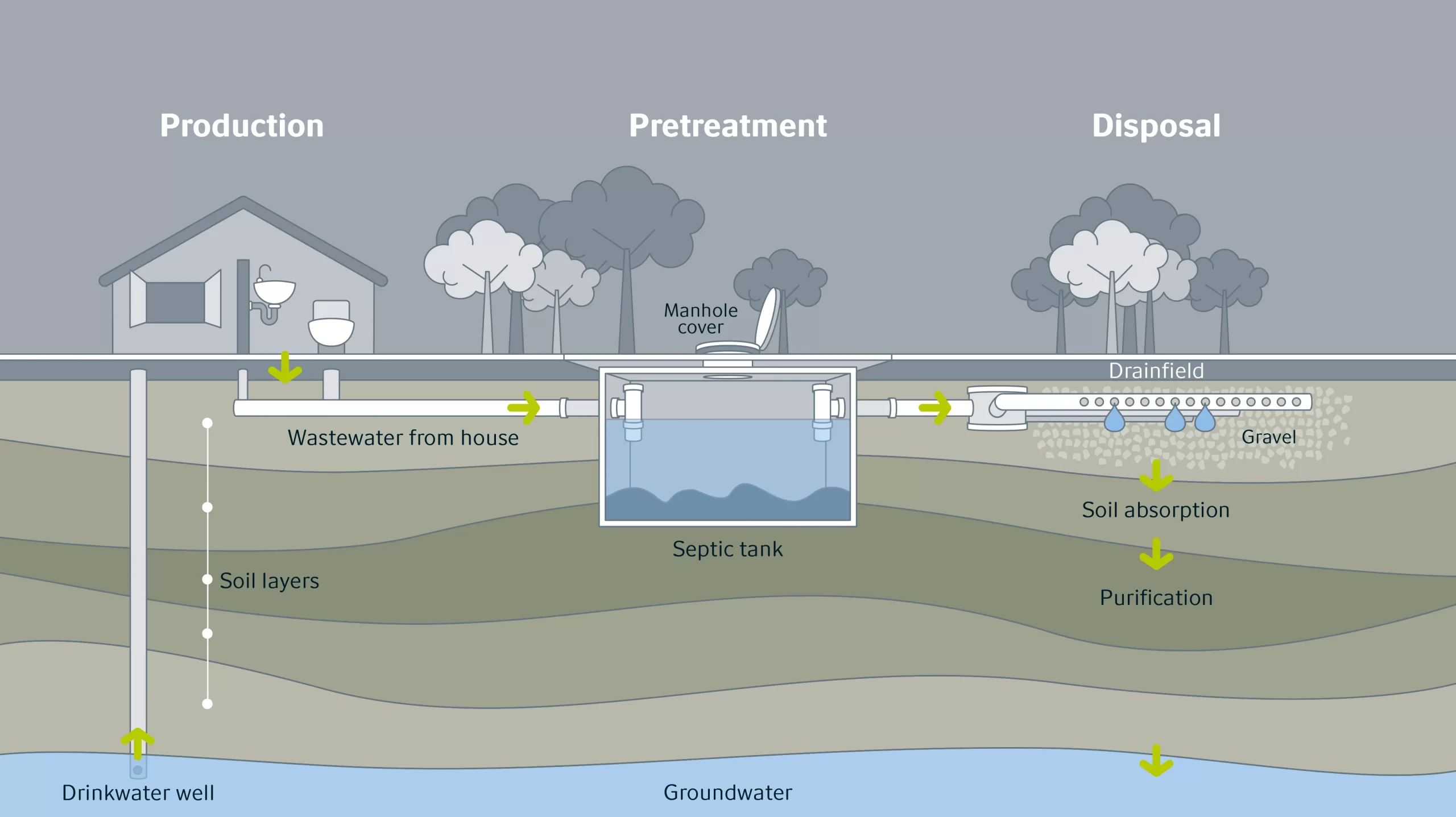Key Takeaways:
- Insight into the role of septic systems in promoting environmental sustainability.
- Understanding the functional mechanics behind septic systems.
- Benefits of regular septic system maintenance.
- The significance of technological advancements in septic system management.
- Tips for homeowners on efficient septic system usage.
Introduction to Septic Systems and Sustainability
Septic systems are a cornerstone of responsible land and water management, particularly in regions beyond the reach of municipal sewage infrastructure. They offer an independent method of treating household waste that can be harmonious with the environment. Adopting mindful practices tied to septic services can be incredibly beneficial, allowing a homeowner to support sustainability through reduced energy consumption and a smaller ecological footprint. Beginning with a foundational understanding of septic system operations, individuals can actively reinforce the health and balance of local ecosystems.
Understanding the Mechanics of Septic Systems
Unveiling the intricacies within a septic system is critical to appreciating its contribution to sustainability. The process starts when waste is channeled into the septic tank, a tight-contained unit where solids are settled, and anaerobic bacteria begin digesting organic material. The resulting effluent moves to a drain field, passing through soil layers, further purifying the water. This elegant process leverages nature’s filtering abilities and ensures that water re-entering the ecosystem does so cleanly and safely, thus protecting both ground and surface water quality.
Environmental Benefits of Septic Systems
Environmental stewardship is a critical consideration in wastewater management, and septic systems excel in this regard by utilizing a low-impact method to treat and return water to the environment. The decentralized nature of septic systems means a reduced load on municipal treatment plants and infrastructure. Furthermore, they prevent the potential for large-scale pollution events associated with sewer systems, such as overflows during heavy rainfall. Carefully managed, a septic system significantly conserves local habitats and water bodies, enhancing biodiversity and resilience to environmental changes. Moreover, the proper design and maintenance of drain fields play a pivotal role in maximizing the environmental benefits of septic systems by facilitating the natural filtration and purification of wastewater before it re-enters the ecosystem.
Maintaining Your Septic System for Longevity
Maintenance is integral to the functionality and environmental efficacy of septic systems. A robust maintenance schedule includes regular septic tank pumping to prevent sludge and scum from escaping into the drain field, potentially obstructing the treated water from properly filtering through the soil. Timely repairs and system inspections reduce the risk of malfunctions that could cause environmental damage. Educated homeowners recognize the eco-friendly and cost-effective nature of preventative maintenance, which circumvents the need for more extensive interventions and preserves the longevity of their systems.
Innovations in Septic System Technology
The intersection of technology and environmental science has significantly enhanced septic system management. Innovations include:
- More robust tank designs.
- Sustainable materials drains.
- Computer-aided systems offer unprecedented control and understanding of septic system status.
These advancements collectively represent a leap forward in environmental conservation and user convenience, ensuring that septic systems remain at the forefront of eco-friendly wastewater treatment options.
Emergence of Smart Septic Technologies- Innovative septic technologies signify a paradigm shift in wastewater management. Integrated sensors and cloud computing offer round-the-clock system monitoring, transforming the traditionally reactive maintenance model into a proactive and predictive one. Such advancements not only aid in the early detection of issues and protect the environment from untreated wastewater, but they also improve the user experience by simplifying system management and offering peace of mind.
Homeowner’s Guide to Efficient Septic Usage
Responsible ownership and operation of septic systems are essential. By increasing water efficiency and decreasing the risk of disruption to the system, individuals can significantly enhance the sustainability aspect of their septic system. Understanding that their daily habits have a direct impact, homeowners become critical players in their wastewater treatment system’s proper functioning and environmental friendliness. This includes knowing what can and cannot be disposed of through these systems and using environmentally safe cleaning products.
Tips for Responsible Septic Management-
- Spread out water usage throughout the day and week to prevent overloading the system during peak times.
- Regularly inspect and pump the septic tank, ideally every 3-5 years, depending on usage.
- Plant only grass over and near your drain field to avoid root interference with the septic system.
Conclusion and Future Perspectives
As public consciousness around environmental conservation continues to grow, so does the importance of septic system sustainability. Through careful maintenance, technological adoption, and responsible daily practices, homeowners can ensure that their septic systems serve their needs and do so in a manner aligned with ecological well-being. Paying close attention to the innovations and growing trends in septic system management will be essential for continued progress in this important aspect of residential and environmental health.
Those interested in the ongoing advancements in septic system technology and sustainability may want to study the literature on innovative wastewater treatment technologies.




